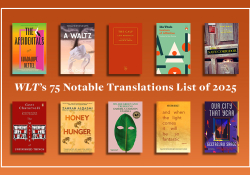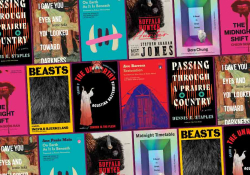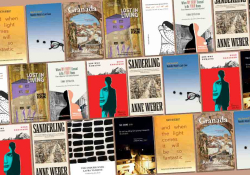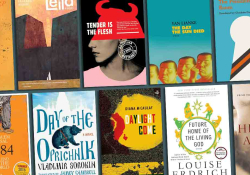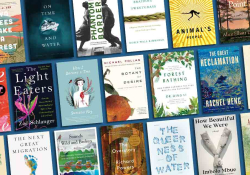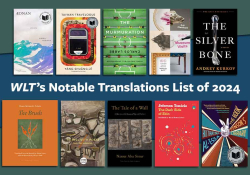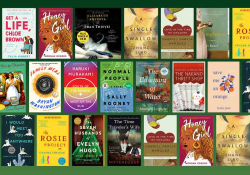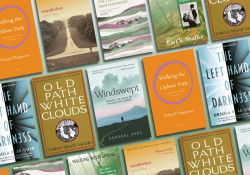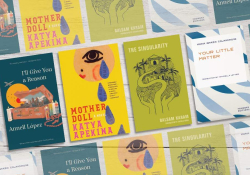The paradoxical legacy of Harper Lee, measuring books by punctuation, and more
News, Reviews, and Interviews
Via the New Yorker, the story behind Salvadoran writer Jorge Galán’s choice to flee his country after the publication of his recent novel Noviembre.
With Inga Ābele’s High Tide as subject, translator Kaija Straumanis considers what it takes to create an award-winning work of “living text.”
Take a tour of Tokyo’s bookstores from Jimbocho and beyond.
International Women’s Day is Tuesday, March 8, and Girl Rising is encouraging educators to use its free Girl Rising curriculum or sign the IWD #PledgeforParity.
In Gaza, bicycles are a battleground for women, and some are cycling in spite of an unwritten rule that bars women past puberty from biking. Alon Raab touches on the role of bicycles in his essay “Wheels of Fire: Writers on Bicycles.”
Via Electric Literature, Je Banach shares what literary discourse offers in an age of extremism.
In the wake of Harper Lee’s passing, Flavorwire examines the author’s paradoxical legacy.
The Society of Authors announced its winners of the 2015 Translation Prizes.
In this article via Shanghai Daily, translators and publishers of Chinese literature discuss how Chinese literature gets the cold shoulder abroad.
Fun Finds and Inspiration
What does your favorite novel look like without words? Check out this fun post about punctuation and see which novels use the most commas, exclamation points, or question marks.
This video game called Memoranda is based on several of Haruki Murakami’s stories.
In this humorous McSweeney’s list, William Shakespeare’s most famous works are presented as elevator pitches.


